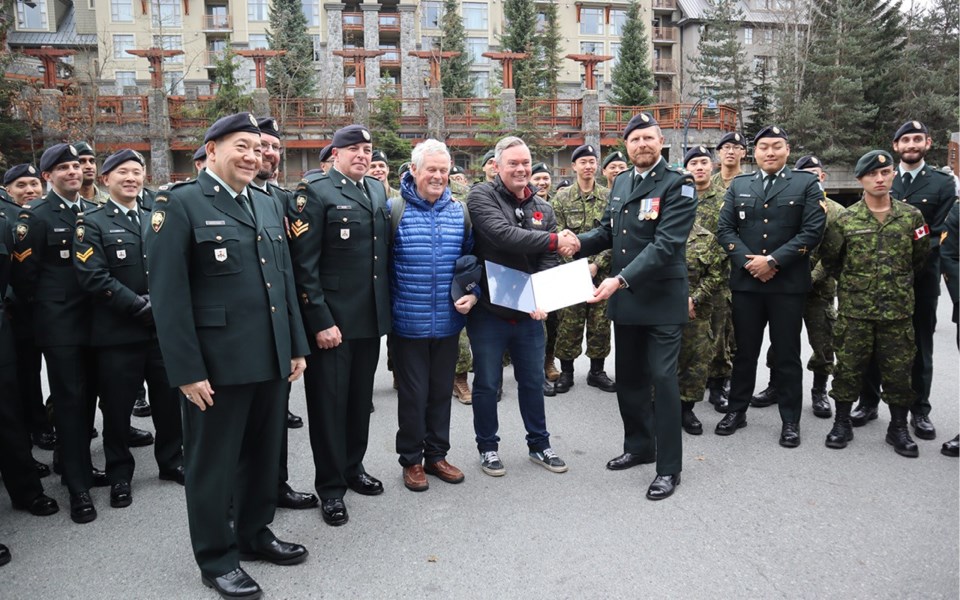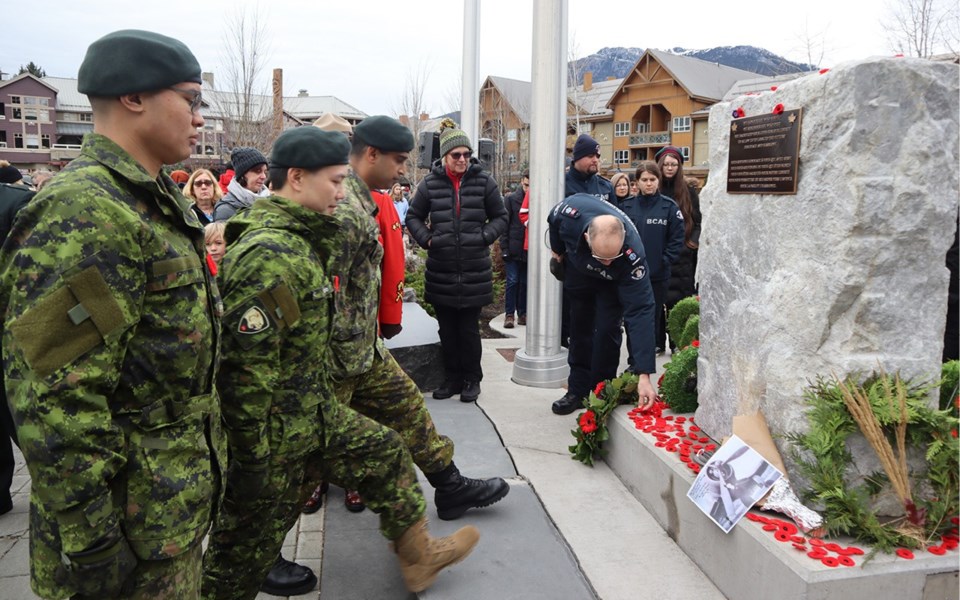
Held under cloudy November skies, it was a similar scene to the one that took place at cenotaphs and monuments in rural communities, towns and cities across the country today. While many Canadians took the opportunity to remember relatives, friends or members of their community who fought—and in too many cases, gave the ultimate sacrifice—the nearly 1,000 Canadian military members, first responders, residents and visitors who gathered in Whistler were prompted to think about the many who perished, unknown.
"They were the victims of the increasingly anonymous slaughter of modern warfare. They lie under hallowed ground, beneath markers bearing no names. They are unknown soldiers," said Anne Townley during her delivery of the annual Act of Remembrance, written this year by G.D. Maxwell.
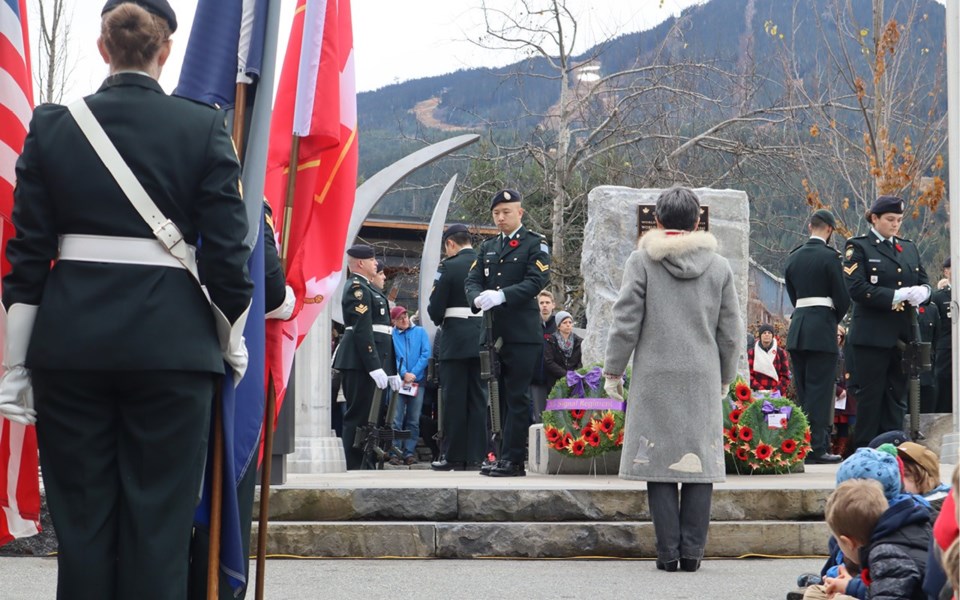
As the Act explained, the First World War was nearly over the first time these nameless victims were afforded their own monument of remembrance.
It was an army chaplain who happened upon a grave marked by a rough cross, with a simple, penciled inscription that read, "An Unknown British Soldier" in 1916. Moved by the sight, the chaplain later proposed the interment of an unidentified soldier from among the French battlefields in Westminster Abbey where that soldier, "and symbolically all the unknown dead would find eternal rest amongst the kings of the empire," Townley told the crowd.
The proposition was warmly received not only in Britain, but, eventually, around the world.
Canada's Tomb of the Unknown Soldier, located at the National War Memorial in Confederation Square in Ottawa, was established in 2000. The soldier was selected by the Commonwealth War Graves Commission from the 1,603 graves of unknown Canadians buried near Vimy Ridge in France.
"So this year, as we gather to remember all those who have served, we take special note of those who fell in circumstances that led to them becoming unknown," read Townley.
"They weren't unknown to the ones who served alongside, they weren't unknown to those who waited anxiously at home for word of their loved ones. But modern warfare, and what passed for modern warfare a century ago, has made killing increasingly anonymous. And so it becomes more important than ever to remember those who were left behind, unknown but not forgotten."
Though Whistler has held an annual Remembrance Ceremony since the mid-1980s, today marked the second year the ceremony was held at the Cenotaph in Whistler Olympic Plaza. The Service began with a Veterans' Parade and Colour Party that set off from the Ted Nebbeling Bridge down Village Stroll, before joining the gathering in Olympic Plaza. The Whistler Singers and Whistler Children's Chorus performed songs of Remembrance, while community members and organizations laid wreaths and poppies across the Cenotaph.
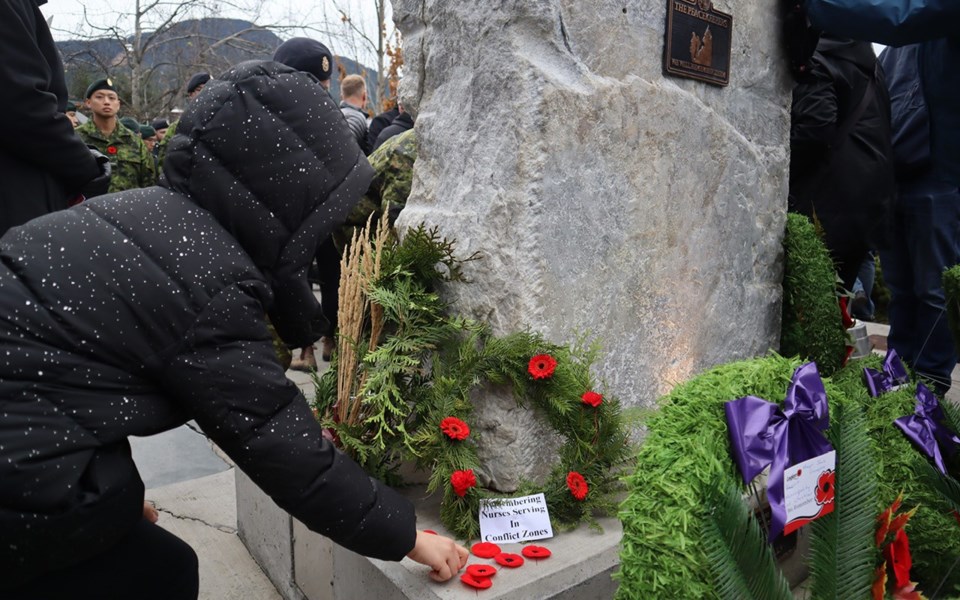
This years' Remembrance Service marked the 101st anniversary of the end of the First World War—101 years to the day that Germany formally surrendered, signing the armistice that resulted a total ceasefire while the terms of peace were negotiated. The war ended at 11 a.m. on the 11th day of the 11th month of 1918.
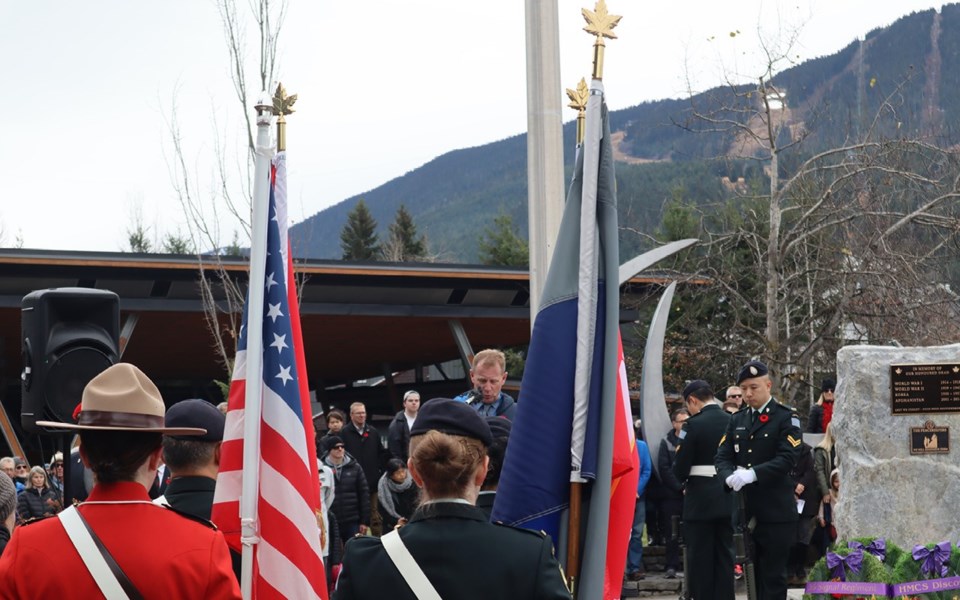
Following the service at the Cenotaph, many of military members who gathered in Whistler made their way to the Whistler Fire Hall for a secondary ceremony.
Rather than the public thanking those who served in Canada's Armed Forces, this ceremony instead saw the Canadian Forces Reserve recognize a local employer.
Whistler-based Coastal Mountain Excavations was honoured with an Employer Recognition certificate, an award "that recognizes the firm's unwavering support and generosity towards an employee who also serves as a Canadian Forces Army Reservist," explained a media advisory from the Department of National Defence.
"This is probably the most fun part of my job, because we get to recognize exemplary employers who have gone above and beyond looking after all of you," Honoury Colonel Derral Moriyama of the Canadian Forces Liaison Council (CFLC) told the Canadian Forces members gathered at the Fire Hall.
"When you think of it, without support from your employers, it makes it very difficult for you to do your jobs. To honour them, with them serving people who serve, is a tremendous honour for CFLC."
Said Coast Mountain Excavations employee and Army Reservist Master Cpl. Ian Ross, "Throughout the years, Coast Mountain Excavations have been there for me through the good times and bad times-those days that we all know that we have, when we have to take off that little bit early ... These guys have gone above and beyond for me. They've been more than just an employer, they've been my family."
